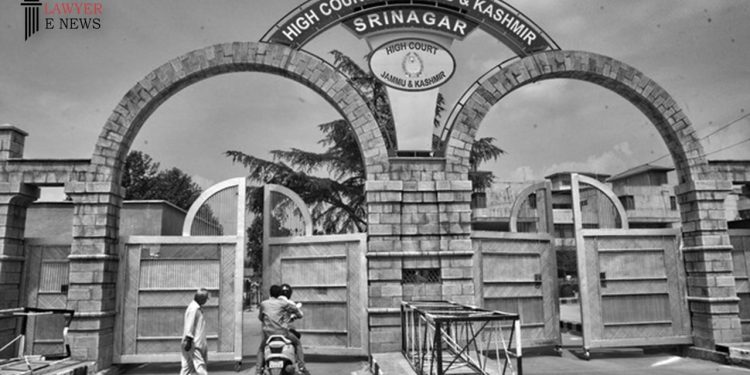-
by Admin
15 February 2026 5:35 AM



The High Court of Jammu & Kashmir and Ladakh, in a judgment delivered on July 16, 2024, by Hon’ble Justice Mohd Yousuf Wani, has set aside a trial court’s common judgment regarding a complex case involving suits for rendition of accounts and recovery of money. The judgment emphasized that the trial was not conducted according to the Code of Civil Procedure (CPC) and that the trial court failed to appreciate the evidence properly. The matter has been remanded for a fresh trial.
The case involves civil appeals arising from a common judgment and decree dated July 31, 2018, passed by the Principal District Judge, Bhaderwah. The parties to the case are:
Appellants: Din Mohd (72 years) and Rehmatullah (51 years), both from District Doda.
Respondents: Shokat Ali and Farooq Ahmed, also from District Doda.
The dispute revolves around contracts for the supply of labor for timber operations in Uttarakhand, where Shokat Ali, a forest contractor, engaged Din Mohd and Balkrishan (another appellant) to supply manpower. Disputes arose regarding the settlement of accounts, leading to multiple lawsuits.
The High Court observed significant procedural lapses in the trial court’s handling of the case. The trial court conducted a joint trial for three interconnected suits but did not adhere strictly to the CPC. The High Court noted, “The trial court’s approach in formulating points of determination rather than framing and settling issues as required under CPC was improper and led to an erroneous judgment.”
The court highlighted the necessity of a local investigation to properly adjudicate the rendition of accounts. Justice Wani remarked, “The trial court should have invoked Order XXVI of the CPC for a commission for local investigation to facilitate a thorough examination of accounts between the parties.”
The High Court upheld the dismissal of the suits filed by Din Mohd for rendition of accounts, agreeing with the trial court’s finding that these suits were not maintainable under the law. However, the court noted that Din Mohd could still argue his case within the remanded suit.
The High Court remanded the suit for recovery of money (file No. 29) back to the trial court, directing it to conduct a fresh trial with the opportunity for both parties to present additional evidence. The judgment stated, “The suit is remanded to the trial court for fresh disposal after affording the parties a further chance of hearing and with liberty to place on record any additional evidence.”
Justice Wani emphasized the importance of adhering to procedural norms: “A civil trial is meant to be conducted strictly as per the provisions of the CPC... Any deviation from this process undermines the judicial system’s integrity.”
The High Court’s judgment underscores the necessity for trial courts to adhere strictly to procedural laws and thoroughly appreciate the evidence presented. By remanding the suit for fresh disposal, the High Court aims to ensure a fair and just resolution of the dispute. The direction to explore amicable settlement through Alternative Dispute Resolution (ADR) mechanisms like Lok Adalat and Mediation highlights the court’s inclination towards resolving disputes efficiently and amicably.
The implications of this judgment are significant, setting a precedent for the importance of procedural rigor in civil trials and potentially influencing future cases involving complex contractual disputes and account settlements.
Date of Decision: July 16, 2024
Din Mohd & Anr. Vs. Shokat Ali & Ors
